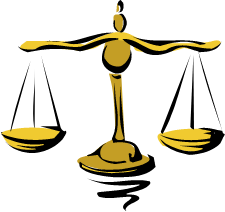The East African Court of Justice (EACJ) together with the United Nations Educational, Scientific and Cultural Organization (UNESCO) convened the High-level Training of Judges of the EACJ and the Judiciary of Uganda on International and Regional Standards on Freedom of Expression, Access to Information, Safety of Journalists and Digital Challenges related to the Internet. The training which took place on 24th October, 2022 at the Mestil Hotel in Kampala, Uganda was part of the series of activities leading up the 2nd Annual East African Court of Justice Judicial Conference.
The high-level training which brought together Judges of the Appellate Division and of the First Instance Division of the EACJ, as well as Judges, Registrars and Magistrates of the Ugandan Courts of Judicature, was officially opened by Hon. Justice Nestor Kayobera, Judge President of the East African Court of Justice.
The Judge President in his remarks, thanked UNESCO for funding the high-level training which is critical in building the capacities of Judges to enhance freedom of expression and freedom of the press, as their decisions can be an important factor to guarantee the implementation of these freedoms in the Region. He emphasised that for Judges to ably undertake their role of upholding the rule of law and protection of fundamental freedoms, they need to be well versed on freedom of expression challenges, and knowledgeable about the related international standards and regional jurisprudence.

The Judge President also recognised that since EACJ and UNESCO formalised their cooperation through a Memorandum of Understanding in December 2021, the Court has greatly benefited through UNESCO’s capacity building programmes for Judges. “Our Partnership with UNESCO has so far provided the EACJ and other Judicial Officers from the region an opportunity to enhance dialogue on their key role in the realisation of Sustainable Development Goals (SDG 16) on Peace Justice and Strong Institutions, particularly target 16.10: “Ensure public access to information and protect fundamental rights,”” affirmed Justice Kayobera.
In his conclusion, the Judge President underscored that the training, will enhance the Judges’ contribution to upholding and strengthening the rule of law and human rights standards in East Africa and Africa as a continent, as well as create a safer and more enabling environment for journalists and the media. He called on the participants to share their judicial experiences and challenges as they make their contribution in fostering freedom of expression and freedom of the press.

The training which was conducted by Prof. Juan Barata an expert from UNESCO, was undertaken through the following thematic sessions:
- International and regional standards on freedom of expression, and its legitimate limits.
- Freedom of expression and legitimate restrictions;
- Introduction to digital challenges to freedom of expression;
- Media Freedom and the safety of journalists; and
- The Right of Access to Information.

Following the conclusion of the training, the Judges participated at the 2nd Annual East African Court of Justice Judicial Conference, whose theme was “Transforming Access to Justice in EAC”. The conference participants were also able to benefit from Prof. Barata wide knowledge and experience on freedom of expression, as he presented a paper during session 6 of the conference on, “The Internet as an Enabler of Freedom of Expression and Public Debate: Implications for the Rule of Law.” The presentation was followed by a panel discussion on the same.

Prof. Juan Barata an expert from UNESCO on a panel discussion “The Internet as an Enabler of Freedom of Expression and Public Debate: Implications for the Rule of Law.”
About the EACJ
The East African Court of Justice (EACJ or ‘the Court’), is one of the organs of the East African Community established under Article 9 of the Treaty for the Establishment of the East African Community. Established in November 2001, the Court’s major responsibility is to ensure the adherence to law in the interpretation and application of and compliance with the EAC Treaty.
Arusha is the temporary seat of the Court until the Summit determines its permanent seat. The Court’s sub-registries are located in the respective National Courts in the Partner States.
For more information please contact:
Christine Mutimura- Wekesa,
Deputy Registrar, East African Court of Justice.
Tel: 255-27-2162149,
Email cmwekesa@eachq.org
East African Court of Justice
Arusha, Tanzania
http://www.eacj.org

